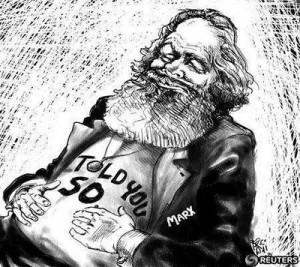Soja, Edward W. 1989. Postmodern Geographies: The Reassertion of Space in Critical Social Theory. London: Verso. [Ch 1-3]
I learned a lot from this book. Reading about Marxism and geography feels a bit like peering into a family album. Ed Soja’s central argument in these first three chapters is that stubborn historicism has led to the detrimental neglect (and void) of spatiality in social theory, roughly since between the downfall of the Paris Commune (if not post-1848) and the 1960s. Continue reading



